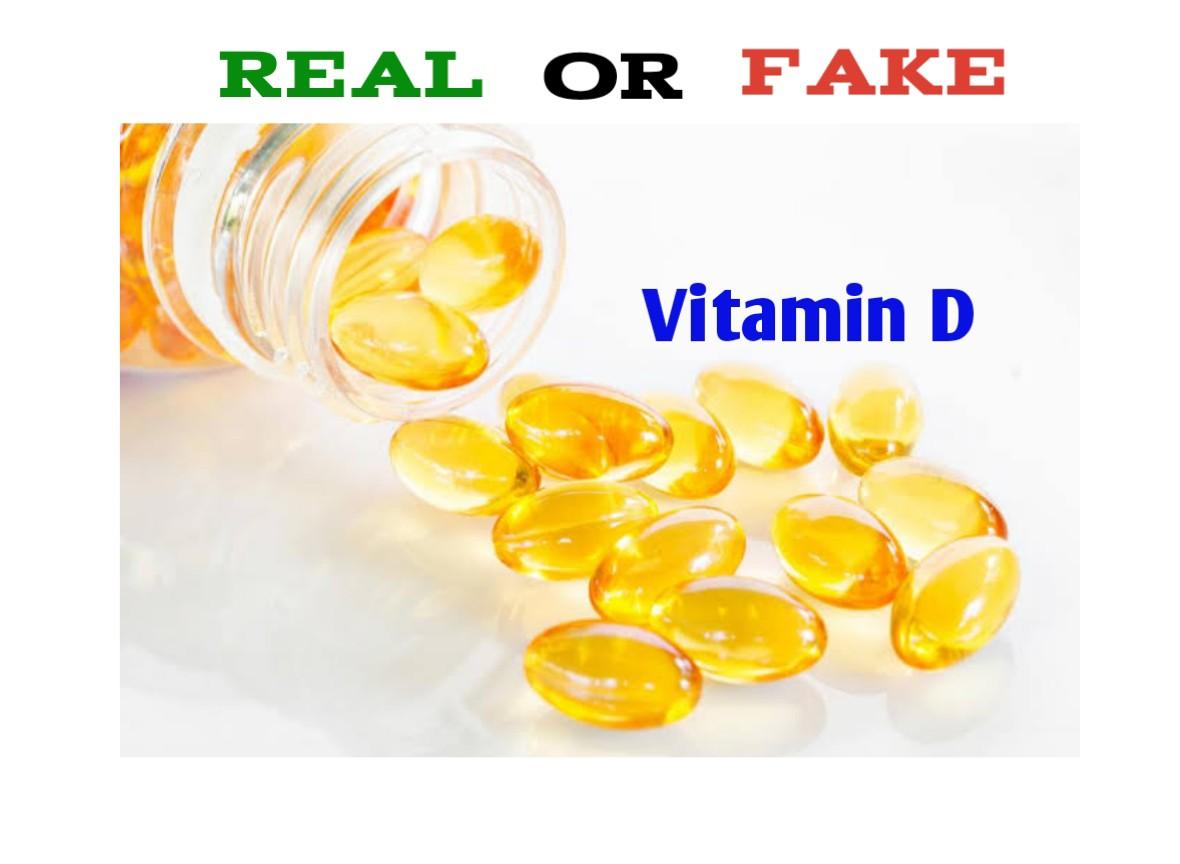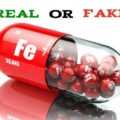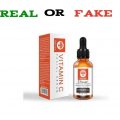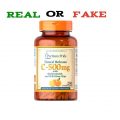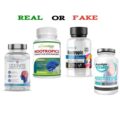Vitamin D is a fat-soluble vitamin that is naturally present in a few foods, is added to other foods, and is available in many nutritional supplements. Vitamin D has the properties of both a hormone and a vitamin and is necessary for mineral homeostasis and proper formation of bone. Vitamin D is available in 2 forms, which includes ergocalciferol (vitamin D2) and cholecalciferol (vitamin D3). Cholecalciferol is the naturally occurring form of vitamin D that is synthesized in the skin from endogenous or dietary cholesterol upon exposure to sunlight. The ergocacliferol form is often used as a food additive.
The major biological function of vitamin D is to maintain normal blood levels of calcium and phosphorus. Vitamin D aids in the absorption of calcium, helping to form and maintain strong bones. Recent research also suggests that sufficient intake of this fat-soluble vitamin may provide protection from and decrease an individual’s risk of developing osteoporosis, hypertension, cancer, and several autoimmune diseases.
Studies report that it triggers the body’s immune cells to produce antibodies; therefore, vitamin D promotes an overall increase in the strength of the immune system. To date, more than 500 studies support the role of vitamin D in immune health. Results from some studies report that vitamin D assists in the maintenance of joint and muscle comfort, as well as the maintenance of a healthy mood, and supports breast, colon, and prostate health. Many multivitamins formulated for women have increased amounts of vitamin D to at least 800 IU.
Although many individuals typically obtain adequate amounts of vitamin D through sunlight exposure and dietary sources, some individuals may be at a greater risk for deficiencies, especially during the winter months. According to the US National Center for Health Statistics, some studies report that an estimated 70% of individuals in the United States may be considered vitamin D deficient.
Patient populations who may be at a high risk for vitamin D deficiencies include the elderly, obese individuals, exclusively breastfed infants, and those who have limited sun exposure.
How much do you need?
There has been some controversy over the amount of vitamin D needed for healthy functioning. Recent research indicates that you need more vitamin D than was once thought. Normal blood serum levels range from 50 to 100 micrograms per deciliter. Depending on your blood level, you may need more vitamin D.
The Institute of Food and Agricultural Sciences reports new recommendations based on international units (IUs) per day. IUs are a standard type of measurement for drugs and vitamins. IUs help experts determine recommended dose, toxicity, and deficiency levels for each person.
One IU is not the same for each type of vitamin. An IU is determined by how much of a substance produces an effect in your body. The recommended IUs for vitamin D are:
- children and teens: 600 IU
- adults up to age 70: 600 IU
- adults over age 70: 800 IU
- pregnant or breastfeeding women: 600 IU.
Fake Supplements
There has been a sharp rise in the incidence of fake supplements globally. The problem became more widespread with the outbreak of coronavirus. Some articles claim that if a person takes vitamin D supplements, they will be less likely to contract SARS-CoV-2. In part, people have based these claims on a controversial paper that appears in the journal Aging Clinical and Experimental Research.
The paper’s authors claim to have found a correlation between low mean levels of vitamin D in the populations of certain countries and higher rates of COVID-19 cases and related deaths in those same countries.
Based on this correlation, the authors hypothesize that supplementing the diet with vitamin D may help protect against COVID-19. However, there is no evidence to suggest that this would actually be the case.
In a rapid review of the evidence published on May 1, 2020, researchers from the Centre for Evidence-Based Medicine at the University of Oxford in the United Kingdom unequivocally conclude: “We found no clinical evidence on vitamin D in [the prevention or treatment of] COVID-19.”
How to Spot Fake Vitamin D Supplements
There are a lot of worrisome articles circulating about counterfeit supplements being sold on Amazon.com. The truth of the matter is, there’s little Amazon can do to protect you against fake products and fake reviews. Though they have a process for reporting and banning counterfeit third-party sellers, these can pop up overnight and it takes time for them to be reported.
Fortunately, you can buy directly from manufacturers on Amazon, manufacturers who are verified and should have a detailed manufacturer profile. You don’t need to fear buying from Amazon if you only buy from verified manufacturers.
Should You Buy Supplements from Retail Locations?
It’s not enough to blindly trust retailers because fake vitamins are sold in stores as well. Large retailers such as GNC, Target, Walgreens, and Walmart have been caught red-handed with fake supplements. The New York Attorney general’s office accused these four retailers of selling fraudulent products.
Here are some of the shocking findings from the NYC attorney general’s report:
- A ginseng supplement sold at Walgreens contained only powdered garlic and rice.
- Six herbs sold by Target tested negative for the herbs listed on their labels. Instead, these supplements were made up of rice, beans, peas, and wild carrots.
- GNC had supplements with ingredients missing from their labels. These hidden ingredients included peanuts and soybeans, which can be very dangerous for anyone with allergies.
The bottom line is this—neither Amazon nor retail stores are sources you can blindly trust when it comes to supplements.
How to Avoid Fake Vitamin D Supplements
- Buy Directly from Reputable Manufacturers
Once you’ve found a reliable manufacturer of a particular supplement you want to buy, you can go right to the manufacturer’s website and purchase directly from them. This is the number one method you can implement to ensure your supplements are not only real, but high quality.
Sure, it may be a bit more expensive because you might not get the free shipping that comes from your Amazon Prime account. However, you’ll have the guarantee of product coming straight from the manufacturer without passing through any unnecessary and potentially dangerous third parties.
Keep in mind, it’s often possible to buy directly from a manufacturer using Amazon. Many manufacturers recognize how convenient it can be for the consumer to use this e-commerce platform and set up an account to sell from their site.
- Buy Directly from Reputable Sources
This strategy differs slightly from manufacturers in that there are many doctors, nurses, and wellness leaders who sell their own private label products. These are often blends of vitamins, minerals, nutrients or herbs that have been developed from their personal clinical experience and research. There are actually many successful blends that were developed by health professionals to support their own patients in their practices. Many of these supplements are unique or personalized health solutions and shouldn’t be overlooked just because they aren’t from the manufacturer themselves.
In the case of supplements sold by reputable sources, be sure to use a similar mentality as you do when you buy from reputable manufacturers. Once you identify the product and source as high quality (from your excellent sleuthing), you should then only buy this directly from the source. Avoid third-party sellers, especially if they are selling the product at a fraction of the price.
- Check the FDA Tainted Product List
You can check the FDA’s tainted products list. This is a running list of potentially hazardous products but is by no means complete.
- Check for Red Flags
Major red flags include:
- If the product seems fake or too good to be true
- Supplements that are very cheap
- If the seller has no contact information
- Reviews that seem overly curated.
- Check for Signs of Credibility
Signs of credibility include:
- Trusted certifications
- Third party lab testing
- Choose trusted brands that have been around for many years.
Ultimately, just like anything else you buy, you run some risk of it not being exactly what you paid for—especially when you get it online. You can check for red flags and signs of credibility but keep in mind many of these can be forged, and so it’s better to stick with a manufacturer and source you trust.
With supplements you should be extra vigilant and spend a little extra time researching, along with possibly a few extra dollars to ensure you are getting exactly what you’re looking for—it pays off in the long run. READ: 5 Strategies For Getting The Best Out Of Supplements

